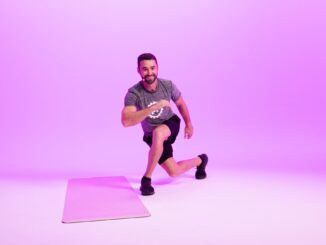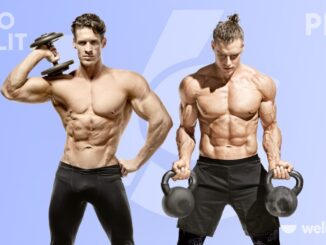

- Cardio Programs: These programs are designed to increase your heart rate and improve your cardiovascular health. They typically involve activities like running, biking, or swimming.
- Strength Training Programs: These programs help you build muscle and improve strength. They usually involve lifting weights or doing other resistance exercises.
- Flexibility Programs: These programs are designed to help you improve your flexibility and range of motion. They typically involve stretching exercises or Yoga.
- Balance Programs: These programs are designed to help you improve your balance and coordination. They might involve activities like tai chi or Pilates.
- Functional Fitness Programs: These programs help you perform everyday activities more quickly and safely. They often involve exercises that mimic real-world movements, such as lifting, carrying, and walking.
The benefits of staying fit
There are countless benefits to staying fit and keeping your body in shape. For one, you’ll look better and feel better about yourself. Staying fit can also help ward off health problems, improve mood, increase energy levels, and more.
But perhaps the most important benefit of staying fit is that it can help you live longer. Many studies have shown that people who are physically active and have a healthy body weight are less likely to die prematurely than those who are sedentary and overweight. So if you want to enjoy a long and healthy life, stay fit.
The Different Types of Body Fitness
Cardiovascular fitness: This type of fitness is all about heart health. Getting your heart rate up and keeping it there for an extended period is key to cardiovascular fitness. That can be achieved through activities like running, biking, or swimming.
Strength training: As the name suggests, strength training is all about building muscle. This fitness is essential for overall health but can also help reduce the risk of injuries in other areas of life. Strength training can be done with weights, resistance bands, or bodyweight exercises.
How to Get Started with Body Fitness
First things first: you should have the right gear. You’ll need some comfortable clothes that you can move around in, as well as some good-quality sneakers. If you’re working out indoors, you might also want to invest in a yoga mat or some other type of flooring protection.
Once you have your gear sorted, it’s time to start thinking about your workout routine. If you’re unsure where to start, plenty of resources are available online or at your local library. There are also many fitness classes offered at gyms and community centers – these can be a great way to get started, as they’ll give you the chance to try out different exercises under the advice of a professional trainer.
The Different Types of Workouts for Body Fitness
- Cardio Workouts: Cardio workouts are great for improving your heart health and burning calories. There are many ways to do cardio activities, such as running, biking, swimming, or elliptical training.
- Strength Training: Strength training is essential for building muscle and improving overall strength. There are many ways to do strength training, such as lifting weights, using resistance bands, or doing bodyweight exercises.
- Flexibility Training: Flexibility training is essential for improving your range of motion and preventing injuries. There are many different ways to do flexibility training, such as stretching, Yoga, or Pilates.
- Balance Training: Balance training is essential for improving balance and coordination. There are many ways to do balance training, such as using a stability ball, doing balance exercises on one leg, or using a wobble board.
- Interval Training: Interval training is a cardio workout alternating between high-intensity and low-intensity periods. This type of workout is excellent.
What to Eat to Stay Fit
- Lean protein: Protein is vital for building and maintaining muscle mass. Choose lean protein sources such as chicken, fish, tofu, and beans.
- Complex carbohydrates: Complex carbs give you lasting energy and help to regulate blood sugar levels. Sources of carbs include whole grains, fruits, and vegetables.
- Healthy fats: Contrary to popular belief, not all fats are bad for you. Fats such as avocados, olive oil, and nuts can help improve heart health, lower cholesterol levels, and reduce the risk of diabetes.
- Water: Staying hydrated is crucial for overall health and fitness. Make sure to drink plenty of water throughout the day to maintain proper fluid balance in your body.














Leave a Reply
Be the First to Comment!
You must be logged in to post a comment.
You must be logged in to post a comment.